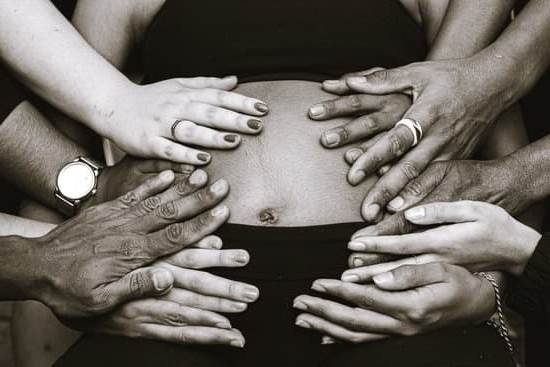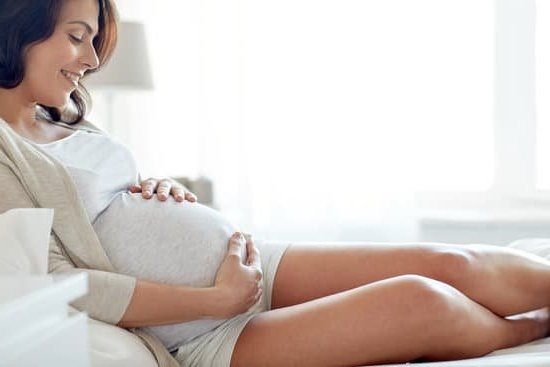Pregnancy is a beautiful and miraculous experience, but it can also come with its fair share of discomforts, one of the most common being lower back pain. Lower back pain during pregnancy is a prevalent issue among expectant mothers, affecting around 50-70% of women during their pregnancy. This article will explore the causes, symptoms, risk factors, prevention, management, exercises and stretches for relief, and when to seek medical help for lower back pain during pregnancy.
As the body undergoes significant changes to accommodate the growing baby, the added weight and shifting of the center of gravity can often result in strain on the lower back. In addition to these physical changes, hormonal fluctuations and postural imbalances can also contribute to experiencing discomfort in the lumbar area. Understanding the causes of lower back pain during pregnancy is essential in finding ways to alleviate this common issue.
Recognizing the symptoms and signs associated with lower back pain during pregnancy is crucial for expectant mothers in order to seek appropriate care and relief. Ranging from mild aches to more severe stabbing or shooting pains, understanding what to look out for can help identify when further action needs to be taken. It’s important for pregnant women to be aware of how their bodies are feeling and know when it’s time to seek medical assistance.
Causes of Lower Back Pain During Pregnancy
During pregnancy, a woman’s body undergoes significant changes to accommodate the growing fetus. These changes can lead to various discomforts, including lower back pain. The primary cause of lower back pain during pregnancy is the extra weight and pressure on the spine as the baby grows.
This added weight strains the muscles and ligaments in the lower back, leading to discomfort and pain. Additionally, hormonal changes during pregnancy can also contribute to lower back pain. The hormone relaxin softens the ligaments in the pelvic area to prepare for childbirth, but it can also affect other areas of the body, including the lower back.
Another common cause of lower back pain during pregnancy is poor posture. As the uterus expands, it changes a woman’s center of gravity, causing her to lean backward to compensate for the additional weight in front. This change in posture can put strain on the muscles in the lower back and contribute to discomfort.
In some cases, pre-existing conditions such as arthritis or previous injuries may be exacerbated by pregnancy, leading to increased lower back pain. It’s important for expectant mothers experiencing persistent or severe lower back pain to consult with their healthcare provider to determine an appropriate treatment plan that is safe for both mom and baby.
| Causes | Effects |
|---|---|
| Extra weight and pressure on the spine | Strains muscles and ligaments in the lower back |
| Hormonal changes | Softens ligaments in pelvic area; affects center of gravity |
Symptoms and Signs of Lower Back Pain During Pregnancy
During pregnancy, many women experience lower back pain due to the physical changes and strain on their bodies. The added weight and shifting posture can lead to increased pressure on the lower back, causing discomfort and pain.
Some common symptoms of lower back pain during pregnancy include a dull ache in the lower back, muscle soreness, difficulty standing up straight, and pain that radiates down the legs. These symptoms can be exacerbated by activities such as standing for long periods of time or lifting heavy objects.
In addition to physical symptoms, there are also signs that may indicate lower back pain during pregnancy. These signs can include difficulty with simple movements such as bending or twisting, stiffness in the lower back after periods of rest, and an increase in discomfort when sitting for extended periods. It is important for pregnant individuals to be aware of these symptoms and signs so they can take steps to manage their lower back pain effectively.
Research has shown that up to 70% of pregnant women experience lower back pain at some point during their pregnancy. This highlights the commonality of this issue and emphasizes the need for effective prevention and management strategies. By understanding the symptoms and signs of lower back pain during pregnancy, individuals can take proactive measures to address their discomfort and maintain a healthy level of physical activity throughout their pregnancy.
| Lower Back Pain During Pregnancy Symptom/Sign | Description |
|---|---|
| Dull ache in the lower back | This is a common symptom of lower back pain during pregnancy and may be due to increased pressure on the lumbar spine. |
| Difficulty standing up straight | Pregnant individuals may experience difficulty with posture due to increased strain on the muscles supporting their spine. |
| Pain that radiates down the legs | This symptom may indicate compression or irritation of spinal nerves, leading to leg discomfort along with lower back pain. |
Risk Factors for Lower Back Pain During Pregnancy
During pregnancy, women experience a number of changes in their bodies that can contribute to lower back pain. Apart from the natural strain on the back from carrying extra weight, there are several risk factors that can increase the likelihood of experiencing lower back pain during pregnancy.
Some of the risk factors for lower back pain during pregnancy include:
- Weight gain: The added weight of the baby and increased fluid retention can put additional strain on the lower back.
- Posture changes: As the belly grows, the center of gravity shifts, causing changes in posture that can lead to back discomfort.
- Hormonal changes: During pregnancy, hormonal changes can loosen ligaments and joints, leading to instability in the pelvic area and added stress on the lower back.
- Previous history of lower back pain: Women who have experienced lower back pain in the past are more likely to experience it during pregnancy as well.
It’s important for pregnant women to be aware of these risk factors and take steps to minimize their impact. By understanding these risk factors, women can take proactive measures to prevent or manage lower back pain during pregnancy.
In addition to these risk factors, other contributing factors such as stress, lack of exercise, and improper lifting techniques can also exacerbate lower back pain during pregnancy. It’s crucial for expectant mothers to be mindful of these risk factors and make lifestyle adjustments to mitigate their impact on their overall comfort and well-being.
Prevention and Management of Lower Back Pain During Pregnancy
During pregnancy, lower back pain can be a common and uncomfortable experience for many women. To prevent and manage lower back pain during pregnancy, there are several strategies that can be employed to help alleviate discomfort and improve overall well-being.
One of the key prevention methods for lower back pain during pregnancy is maintaining good posture. This includes practicing proper body mechanics when lifting objects, getting in and out of bed, and sitting or standing for extended periods. Additionally, using supportive footwear and avoiding high heels can also help reduce strain on the lower back.
In terms of management, pregnant women can benefit from incorporating regular exercise into their routine. Low-impact activities such as prenatal yoga, swimming, and walking can help strengthen the muscles that support the lower back, ultimately reducing discomfort. It’s important to consult with a healthcare provider before starting any new exercise regimen to ensure safety for both mom and baby.
Furthermore, seeking out alternative therapies such as prenatal massage or acupuncture may provide relief for lower back pain during pregnancy. These holistic approaches can help relax tense muscles and improve circulation in the affected areas. It’s essential to communicate with a healthcare provider before pursuing any alternative treatments to ensure they are safe and appropriate for the individual’s specific situation.
By being proactive in implementing these preventive measures and exploring various management options, women can effectively address lower back pain during pregnancy, leading to a more comfortable and enjoyable experience as they prepare for childbirth.
Exercises and Stretches for Lower Back Pain Relief During Pregnancy
Importance of Exercise
Exercise during pregnancy is not only safe but also beneficial, especially when it comes to managing lower back pain. The right exercises can help strengthen the muscles that support your back and improve flexibility, ultimately providing relief from discomfort. It is important to consult with your healthcare provider before starting any exercise regimen to ensure that it is safe for you and your baby.
Recommended Exercises and Stretches
- Pelvic tilts: This exercise helps to strengthen the abdominal muscles, which in turn can alleviate lower back pain.
- Prenatal yoga: Gentle yoga poses can help improve flexibility and reduce tension in the lower back.
- Cat-Cow stretch: This gentle stretch can help relieve lower back pain by stretching and mobilizing the spine.
- Kegel exercises: Strengthening the pelvic floor muscles can provide support for the lower back.
- Swimming: Low-impact aerobic exercise like swimming can help reduce back pain while also providing a full-body workout.
Safety Precautions
When performing exercises or stretches during pregnancy, it’s important to listen to your body and avoid overexertion. Avoid exercises that involve lying flat on your back after the first trimester, as this position can restrict blood flow to you and your baby. Always warm up before exercising and cool down afterwards to prevent injury. If at any point you experience increased pain or discomfort, stop the activity immediately and consult with your healthcare provider.
By incorporating these exercises and stretches into your daily routine, you may find relief from lower back pain during pregnancy while also promoting overall physical well-being for both you and your baby.
When to Seek Medical Help for Lower Back Pain During Pregnancy
During pregnancy, it is common for women to experience lower back pain due to the added weight and changes in their body. However, there are times when the pain may be more severe and require medical attention. It is important for pregnant women to be aware of the signs that indicate when it is time to seek medical help for their lower back pain.
Severe or Persistent Pain
If you are experiencing intense or persistent lower back pain that does not go away with rest or changes in position, it is essential to consult with your healthcare provider. This could be a sign of a more serious underlying issue that needs to be addressed.
Numbness or Tingling
Another indication that it may be time to seek medical help for lower back pain during pregnancy is if you are also experiencing numbness or tingling in your lower back, legs, or feet. This could be a sign of nerve compression or other complications that require medical attention.
Difficulty Walking or Standing
If your lower back pain makes it difficult for you to walk, stand, or perform daily activities, it is important to see your healthcare provider. Difficulty moving can indicate a more serious problem that needs to be addressed promptly.
It is crucial for pregnant women experiencing severe or concerning symptoms related to lower back pain during pregnancy to seek medical help promptly. Your healthcare provider can assess your condition and provide appropriate treatment and guidance for managing your discomfort.
Conclusion
In conclusion, lower back pain during pregnancy is a common and often uncomfortable experience for many women. However, there are several ways to cope with and manage this discomfort, allowing expecting mothers to look forward to postpartum relief. By understanding the causes, symptoms, and risk factors of lower back pain during pregnancy, women can take proactive steps to prevent and manage it.
It’s important for pregnant women experiencing lower back pain to engage in exercises and stretches specifically designed to provide relief and strengthen the muscles supporting the lower back. Additionally, implementing proper posture techniques and utilizing support devices can also help alleviate discomfort. Seeking medical help when necessary is crucial, as healthcare professionals can offer tailored advice and treatments for managing lower back pain during pregnancy.
While coping with lower back pain during pregnancy can be challenging, it’s essential for expectant mothers to remain positive and focus on the joy of motherhood. Looking forward to postpartum relief is a source of hope for many women experiencing this discomfort. By following preventive measures and seeking appropriate care, women can find relief from lower back pain both during pregnancy and after giving birth.
Frequently Asked Questions
When Should I Worry About Lower Back Pain in Pregnancy?
Lower back pain in pregnancy is common, but there are certain signs that indicate a need for concern. If the pain is severe, persistent, or accompanied by other symptoms like fever or bleeding, it’s important to consult with a healthcare provider.
How Can I Relieve Back Pain During Pregnancy?
There are several ways to relieve back pain during pregnancy. This includes regular exercise such as prenatal yoga or swimming, using good body mechanics when lifting or carrying objects, practicing good posture, wearing supportive footwear, and using hot or cold compresses on the area of discomfort.
Why Does My Lower Back Hurt at 24 Weeks Pregnant?
Lower back pain at 24 weeks pregnant can be attributed to a number of factors including weight gain, changes in posture, hormonal shifts, and the growing uterus putting pressure on the spine and surrounding muscles. It’s typically considered a normal part of pregnancy but should be mentioned to your healthcare provider during routine check-ups.

Welcome to my fertility blog. This is a space where I will be sharing my experiences as I navigate through the world of fertility treatments, as well as provide information and resources about fertility and pregnancy.





